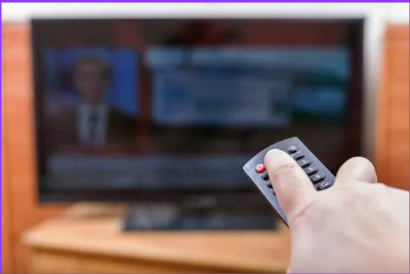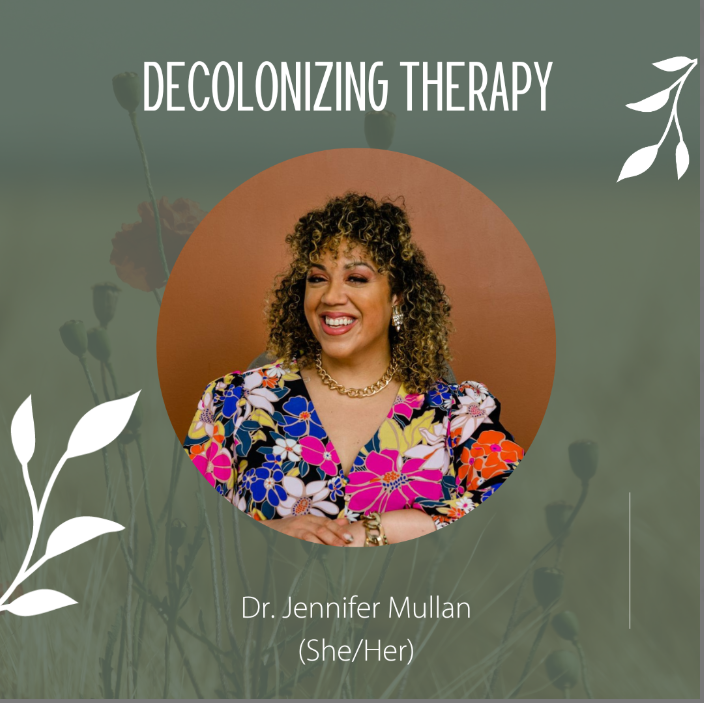Decolonizing the Therapy Room: Why Healing Doesn’t Have to Look Like Talking About Your Mother for an Hour
Therapy doesn’t have to feel like sitting in a white cube, talking about your feelings for 50 minutes. For many BIPOC and LGBTQIA+ people, traditional Western therapy models feel tone-deaf—built on cultural assumptions that don’t align with how we process pain, joy, or liberation.
Decolonizing therapy means reimagining what healing looks like. It moves beyond interrogating trauma through one narrow lens—typically rooted from a white lens —and opens space for embodied, ancestral, and community-rooted practices. It acknowledges history, power dynamics, and how healing must honor cultural truths.
Why “Standard” Therapy Often Falls Short for Our Communities
Traditional therapy typically centers individual pathology—what’s “wrong” with you. It expects emotional labor to be done within particular norms: sharing personal stories, intellectualizing pain, and containing it in a session. For many BIPOC and queer clients, this not only misses the mark—it retraumatizes.
A review in the Journal of Clinical Psychology shows that even culturally adapted therapies like CBT can have weaker effects for ethnic minorities when racial and cultural experiences aren’t fully integrated. Systemic racism, ancestral pain, and minority stress frequently go unaddressed.
“Decolonizing therapy is reclaiming the right to heal in ways that feel culturally honest,” writes a Black therapist exploring liberation frameworks in mental health (Culturally Responsive Cognitive Behavioral Therapy for Ethnically Diverse Populations.)
Culturally-Responsive Therapy Is More Effective—but Must Go Deeper
A meta-analysis of adapted psychotherapy models found they were significantly more effective than generic approaches for clients from ethnic minority backgrounds. Cultural competence isn’t just courtesy—it’s a necessity for healing to land.
Therapist representation matters too. Hispanic, Black, and Asian clients often experience better outcomes when they share cultural affinity with their therapists—reduced symptoms and lower dropout rates. Our staff at Mended Counseling is representative of the population that seek us out.
What Decolonizing Therapy Looks Like in Practice
1. Somatic & Ritual Practices
Therapy can include sound healing, prayer, breath, movement, creative expression, and ancestral honoring—moving healing into the body and spirit.
2. Nomadic Modalities like IFS or Liberation Psychology
Internal Family Systems allows parts to be held with respect—your protector, your child, your revolutionary self—not pathologized. Liberation psychology re-centers healing within social and political truth :contentReference[oaicite:4]{index=4}.
3. Collective Healing & Ceremony
Group work, healing circles, ancestral naming, or even just thematic zoom gatherings can repair isolation and restore community connection.
4. Anti-Racist & Reflective Holding
Therapists acknowledge systemic harm, power dynamics, and their own cultural limitations, inviting clients to do the same. Healing becomes an act of survival and resistance.
Case Example: “Keisha’s Restored Voice”
(Name changed.) Keisha, a Black queer professional in uptown Charlotte, always felt therapy required her to extract her pain and examine it as if it were pathology. In a decolonized space, her therapist invited sound check-ins: “Is there a part that wants to rest today?” Her answer came quietly, with music. Through IFS, she invited her “spirit part”—the one tired of performing—to just be. On her first session there, she left with permission to rest—not because she deserved it, but because rest is resistance.
Why Charlotte Needs This Kind of Therapy Now
In spaces like SouthPark, Huntersville, or University City, BIPOC and queer professionals are often the first in the room—every room. Traditional therapy can reinforce the pressure to perform. By offering healing spaces that honor ancestral pain, ritual, and embodied liberation, Mended Counseling is becoming a refuge where you don’t have to explain who you are to start healing.
Finding Your Aligning Support
Ask potential therapists:
- “How do you incorporate non-verbal practices, like breath, movement, or instrument sound, into therapy?”
- “How do you hold cultural or ancestral grief within therapy?”
- “What does cultural competence mean to you in practice?”
What You Can Do Now
- Create a healing ritual corner: candles, cloth, sand, photo, or sound bowl—it’s your sanctuary.
- Check in with your parts: “Who is holding this moment for me?” Naming is a radical act.
- Anchor your grounding: Walk a block in Freedom Park or meditate in your car after a busy day—holding yourself is revolutionary.
Let Healing Look Like You
You don’t need to shrink to fit therapy. Healing can look like breath, song, stillness, ancestral naming, and movements your body still remembers. Decolonized therapy is not a trend—it’s liberation disguised as care.
At Mended Counseling, we’re building that space in Charlotte—with IFS, mindfulness, sound, and cultural honoring built into our approach. When they ask you to “talk for an hour,” know you can just breathe. That’s healing.
👉 Book your cultural healing session today and reclaim the right to heal on your terms.
Mended Counseling & Consultation proudly serves Charlotte, NC and surrounding areas including NoDa, University City, Highland Creek, Mallard Creek, Northlake and all surrounding areas. We also provide services online in NC, SC, VA, GA, and DC. All therapists are not licensed in all states. We specialize in trauma-informed, LGBTQIA-affirming care.



